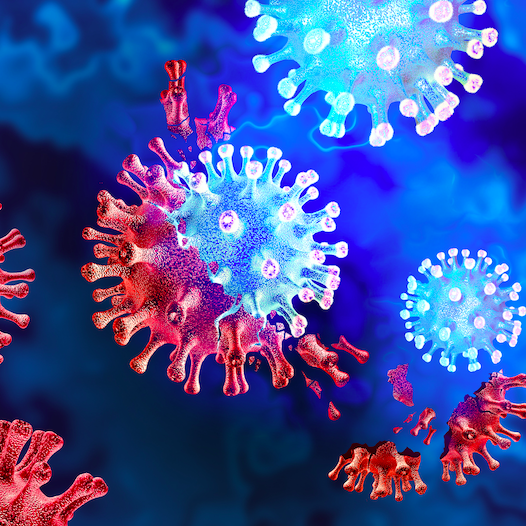

Research Terms
A compound that binds to sigma receptors can treat and prevent viral infections, such as SARS-CoV-2 (COVID-19), and their symptoms. COVID-19 was first detected in December 2019 in Wuhan, China. In January 2020, the first cases in the United States (U.S.) were reported. More than a million in the U.S. and six million globally have died due to COVID-19 infections or complications. Developing treatments to fight COVID-19 has been a top priority for medical researchers, academia, and pharmaceutical companies. Currently, a limited number of anti-viral treatments are readily available for treating COVID-19 and the symptoms associated with it.
Researchers at the University of Florida have developed compounds that bind to sigma receptors which can be administered orally, nasally, ophthalmically, or injected to treat and prevent SARS-CoV-2 (COVID-19). These compounds target surface proteins found in SARS-CoV-2 and many other viruses, such as Hepatitis C. This gives the immune system time to respond to infection. It also provides the ability to treat and prevent respiratory, pulmonary, cardiovascular, or metabolic symptoms or dysfunction associated with COVID-19 infection while slowing down viral effects on the cells.
Sigma receptor binding compounds for treating and preventing COVID-19 and the symptoms associated with infection
These antiviral compounds are sigma receptor ligands and modulates proteins found on the cell surface that mediate the early stages of viral RNA replication. Targeting these receptors interferes with early virus reprogramming of cells and gives the immune system more time to respond, especially in vaccinated individuals. Sigma receptor compounds exhibit antiviral properties against SARS-CoV-2 and could inhibit COVID-19 mediated cell death, intracellular replication, and infectivity.











































































































































































